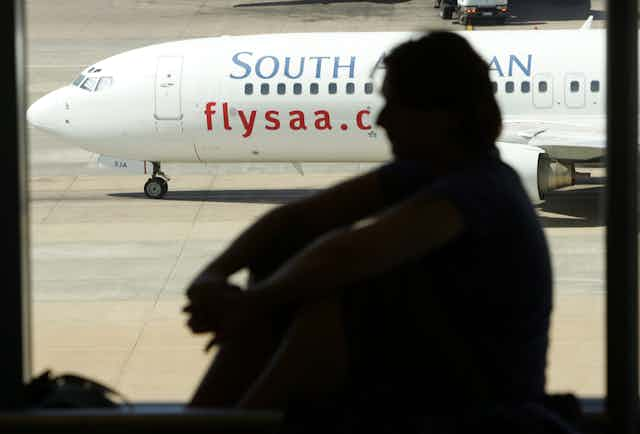State-owned enterprises are legal entities required to take on commercial and development activities for the government. They tend to be hybrid by nature in that they have a business mandate with a profit aim combined with a development, social or service delivery mandate.
In South Africa’s case there is a particular emphasis on state-owned enterprises contributing to the goals of a developmental state. This development mandate is not unique to South Africa. Governments worldwide use state-owned companies as catalysts for growth, development and employment. The enterprises are also becoming increasingly influential in the global market. China’s state companies are notable examples.
State-owned enterprises, also known as parastatals, generally have one shareholder: the state. In South Africa, the respective cabinet ministers act as shareholders on behalf of the state, thus maintaining political oversight of them. The shareholding minister is, in turn, accountable to parliament.
Parastatals are funded from the public purse. As an indirect shareholder, the public has a legitimate interest in their workings. That’s why the relevant minister needs to be cognisant that he or she “promotes the public interest”.
But South Africa’s parastatals are in a dire state. Instead of being the mandated sites of development and profitability, they are costing the country and the public purse billions. In the 2014/2015 financial year, they made a combined loss of R15,5 billion.
Some of South Africa’s state-owned enterprises are being used for personal ends by individuals within the ruling African National Congress. The root of the problem is that the principle of impartiality has been transgressed. Instead, the state is being used as a partisan role player, notably in the distribution of patronage.
Political interference
Two tangible examples illustrate this: the South African Broadcasting Corporation (SABC) and South African Airways (SAA). After disentangling the chaos, dismal performances, financial mismanagement and blatant lack of accountability at these entities, links to President Jacob Zuma become clear.
Mismanagement has left the public broadcaster in financial trouble. This has been blamed on the fact that its controversial Chief Operations Officer, Hlaudi Motsoeneng, enjoys political protection.
In 2014 Public Protector Thuli Madonsela made adverse findings against Motsoeneng. Despite this, he was appointed permanently to the post of chief operations officer by communications minister Faith Muthambi.
Motsoeneng has undermined the central role of the SABC - that is, to be a public broadcaster. For example, he has instructed journalists that 70% of the broadcaster’s news output must be “positive”. He has also insisted that Zuma be given special treatment.
SAA has a similarly sad tale. The national airline incurred a R2,5 billion loss in the 2013/14 financial year. It has failed to submit financial statements for the past two years and is technically insolvent. Although several of its board members laid complaints against its chairperson Dudu Myeni, no action has been taken against her. Instead, they were summarily removed from their positions. And Myeni has been reappointed chairperson.
Myeni is close to Zuma and serves as chairperson of his charity, the Jacob Zuma Foundation.
Tensions between state and government
The fair distribution of, and access to, public goods in the public interest requires an autonomous or impartial state. Impartiality disqualifies corruption, cronyism, patronage, nepotism, political favouritism and discrimination.
There is considerable tension between the notion of an impartial state – a core value embedded in South Africa’s 1996 constitution – and the political use of the state for partisan ends, or in the case of the state-owned enterprises, for personal ends.
Impartiality means being unmoved by considerations such as special relationships and personal preferences.
A crucial part of ensuring impartiality is to maintain the distinction and jurisdictional boundary between the state and government. The political administration of government can change as a result of elections while the state machinery is a distinct set of supportive institutions. These institutions need to continue to operate regardless of changes in political administration.
Governments come and go, while the state remains. It is essential for there to be state autonomy - a precondition for state agencies and personnel acting in the public interest. When state-government lines become blurred the state loses its autonomy, and so its neutrality. When the state becomes “captured” it can be used for partisan ends – serving the purposes or whims of the governing party or its leaders.
The ultimate irony
Even though the recent Presidential Review of state-owned entities acknowledged the need for “neutrality” and “independent autonomy”, Zuma has been named as chairperson of a new coordinating committee that will oversee South Africa’s parastatals.
The move is possibly a strategy to undermine Deputy President Cyril Ramaphosa, who has since 2014 had political oversight over state companies. This could also be part of the ongoing factional divisions within the ANC. More pertinently though, it will give Zuma more say in the bailing out of parastatals and a closer eye over his personal interests.
If South Africa’s parastatals are to fulfil their developmental mandate and be good stewards of the public purse, they must stop being used for partisan ends – even the president’s.
The long-term trajectory of not abiding by the principle of impartiality is that state institutions and resources are used for partisan ends. This makes the political contest for governing power a zero-sum game. Access to the political administration becomes tantamount to access to resources for partisan gain, as opposed to being stewards of public resources for the public interest.

